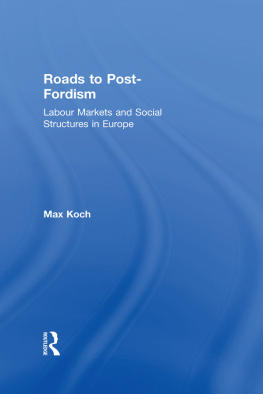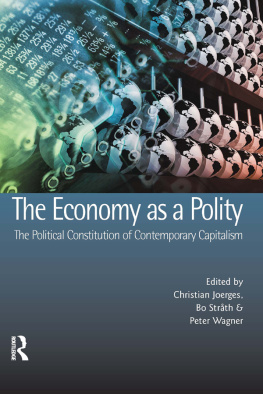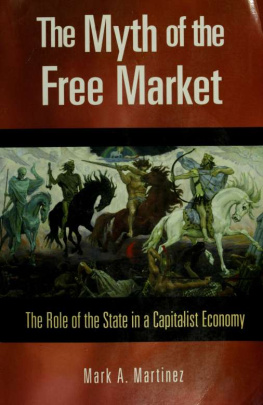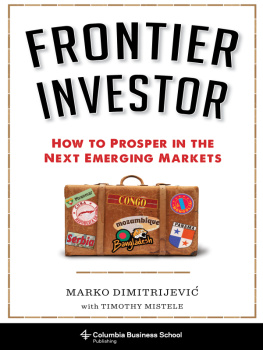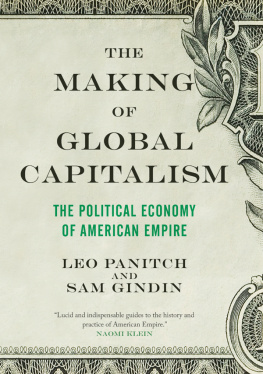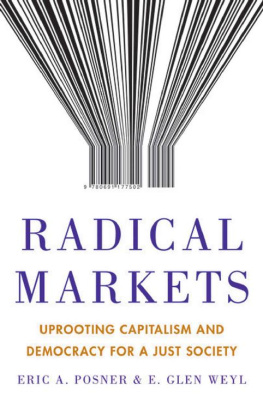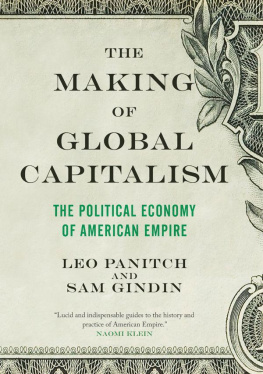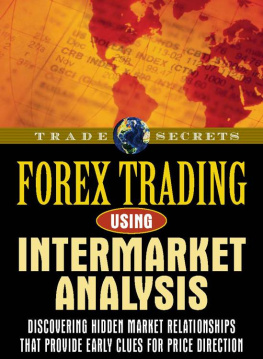Disembedded Markets
This book offers a sociological analysis of globalised capitalist markets, advancing the notion of disembedded markets to challenge the idea of social embeddedness common in economic sociology. Avoiding an exclusive focus on institutions, networks and trust relationships surrounding markets, the author concentrates on private property as the key institution of markets, in order to emphasise the historical origins of modern capitalism and the free market narrative, and to develop a socio-historical analysis of the disembedding process together with an account of the built-in contradictions and limits of market universalisation. Through an analysis of their encompassing character, this volume demonstrates that disembedded markets do not fit standard theoretical accounts of sociality a problem taken up not only by Karl Marx, but also by Friedrich August von Hayek and Niklas Luhmann and questions the attempts of the emerging approach known as economic theology to draw parallels between the practices that arise from disembedded markets and from forms of religious experience and ritual. A rigorous examination of the phenomenon of disembedded markets and the claims to which they give rise concerning the equivalences between religion and capitalism, this book will appeal to scholars of sociology and economics with interests in capitalism, social theory and global markets.
Christoph Deutschmann is Professor Emeritus and former Chair of Sociology at the University of Tbingen, Germany. He has worked as a research fellow at the Institute for Social Research in Frankfurt/M, at Tohoku University in Sendai, Japan, and at the WZB Berlin Social Science Center. His research interests and publications are in the fields of economic sociology, the sociology of work, and social theory.
Classical and contemporary social theory
Series Editor: Stjepan G. Mestrovic, Texas A&M University, USA
Classical and Contemporary Social Theory publishes rigorous scholarly work that re-discovers the relevance of social theory for contemporary times, demonstrating the enduring importance of theory for modern social issues. The series covers social theory in a broad sense, inviting contributions on both classical and modern theory, thus encompassing sociology, without being confined to a single discipline. As such, work from across the social sciences is welcome, provided that volumes address the social context of particular issues, subjects, or figures and offer new understandings of social reality and the contribution of a theorist or school to our understanding of it.
The series considers significant new appraisals of established thinkers or schools, comparative works or contributions that discuss a particular social issue or phenomenon in relation to the work of specific theorists or theoretical approaches. Contributions are welcome that assess broad strands of thought within certain schools or across the work of a number of thinkers, but always with an eye toward contributing to contemporary understandings of social issues and contexts.
Urban Walls
Political and Cultural Meanings of Vertical Structures and Surfaces
Edited by Andrea Mubi Brighenti and Mattias Krrholm
Updating Charles H. Cooley
Contemporary Perspectives on a Sociological Classic
Natalia Ruiz-Junco and Baptiste Brossard
Freud as a Social and Cultural Theorist
On Human Nature and the Civilizing Process
Howard L. Kaye
From the Peaceable to the Barbaric
Thorstein Veblen and the Charro Cowboy
Beatriz Aldana Marquez
For more information about this series, please visit: https://www.routledge.com/sociology/series/ASHSER1383
Disembedded Markets
Economic Theology and Global Capitalism
Christoph Deutschmann
First published 2019
by Routledge
2 Park Square, Milton Park, Abingdon, Oxon OX14 4RN
and by Routledge
52 Vanderbilt Avenue, New York, NY 10017
Routledge is an imprint of the Taylor & Francis Group, an informa business
2019 Christoph Deutschmann
The right of Christoph Deutschmann to be identified as author of this work has been asserted by him in accordance with sections 77 and 78 of the Copyright, Designs and Patents Act 1988.
All rights reserved. No part of this book may be reprinted or reproduced or utilised in any form or by any electronic, mechanical, or other means, now known or hereafter invented, including photocopying and recording, or in any information storage or retrieval system, without permission in writing from the publishers.
Trademark notice : Product or corporate names may be trademarks or registered trademarks, and are used only for identification and explanation without intent to infringe.
British Library Cataloguing in Publication Data
A catalogue record for this book is available from the British Library.
Library of Congress Cataloging-in-Publication Data
A catalog record has been requested for this book.
ISBN: 978-1-138-61402-4 (hbk)
ISBN: 978-0-429-46426-3 (ebk)
Contents
The pre-history of this book goes back to my studies and seminars on the sociology of money, particularly those on the work of Karl Marx and Georg Simmel, which I started more than twenty-five years ago in Tbingen. What I gradually learnt from these classic authors, as well as from the debates with my students and colleagues, was to understand money as a relational phenomenon, that is, as something that is primarily relevant not due to its inherent qualities, but to the social relationships and opportunity contexts which it constitutes. Exploring these relationships and contexts, however, became a long journey, one without a clear destination and full of not always productive detours. And I am afraid that even this book may mark only a preliminary end of the journey, and not a definitive one.
What helped me greatly to keep orientation were several research stays at the Max Planck Institute for the Study of Societies in Cologne, first as a scholar-in-residence in 2008 and then again in 2011 and 2015. Jens Beckert, Wolfgang Streeck, Sascha Mnnich and many other colleagues at the institute encouraged me to continue my project, and gave me many valuable comments and much useful advice. Martijn Konings played a key role in pushing me to start writing this book. Moreover, I have to thank Paul Windolf for extended intellectual exchanges on financial markets and money, and Stefan Schwarzkopf, Uwe Schimank and Axel Paul for reading early versions of the manuscript and for giving me important feedback. Scott Stelle not only helped me correct the linguistic deficiencies of the manuscript, but he also gave me productive comments; moreover I have to thank Michael Helfield for his excellent work in editing the manuscript. Last, but not least, I am grateful to SAGE Publications, to the Max Planck Institute for the Study of Societies, and to Leipziger Universittsverlag for granting me permission to reprint in this book parts of some of my earlier publications:
References
Deutschmann, Christoph (2012a). Capitalism, Religion and the Idea of the Demonic, MPIfG Discussion Paper, February, Kln: Max Planck Institute for the Study of Societies.
Deutschmann, Christoph (2015). Disembedded Markets as a Mirror of Society: Blind Spots of Social Theory. European Journal of Social Theory 18(4), 368389.


